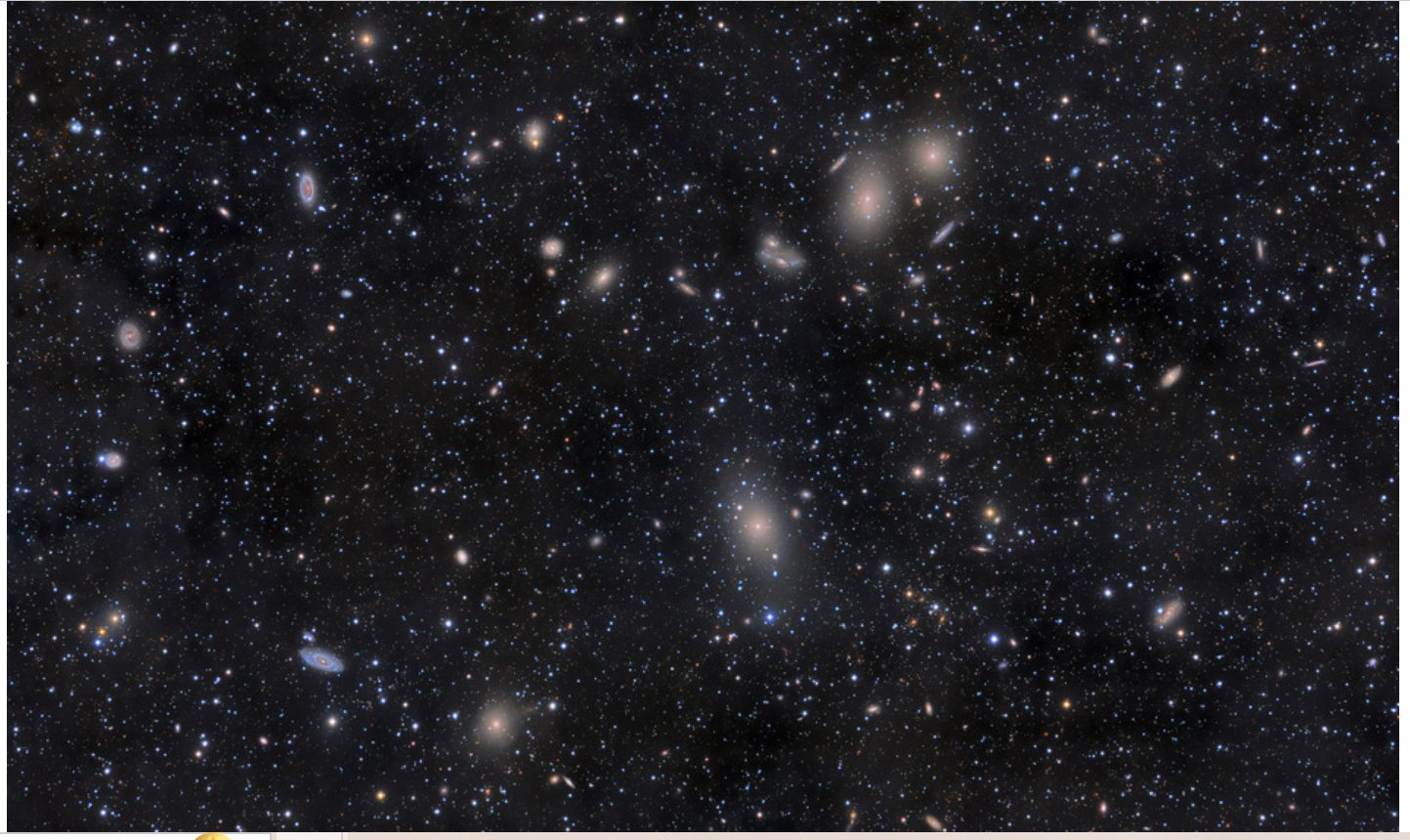
Posted on 11/06/2025 5:36:38 AM PST by Red Badger
Behind the Sun, the comet appears to show signs of acceleration beyond what is expected by gravity. And for reasons not yet clear, it appears to have changed color.
Ateam of astronomers monitoring interstellar object 3I/ATLAS have found something a little surprising. Our third confirmed interstellar visitor appears to have changed color for the second time. Meanwhile, another team finds that the comet has begun to show signs of non-gravitational acceleration as it approached perihelion.
For those of you who haven't been following the story of our third interstellar visitor, on July 1, astronomers at the Asteroid Terrestrial-impact Last Alert System (ATLAS) spotted an object hurtling through our Solar System on an escape trajectory. Given its velocity and its eccentricity between 6.1 and 6.2, it was confirmed to be an interstellar object, the third we have seen after 1I/'Oumuamua and 2I/Borisov.
Astronomers have kept a close eye on the object, now known to be a comet due to its distinctive outgassing behavior. They have found a number of unusual features of the object, which may well be a 10-billion-year-old time capsule from an earlier age of the universe. Studying it could tell us the exotic environment it grew up in, though astronomers are still attempting to pin down exactly which part of the galaxy it came from.
Unfortunately, while the object was approaching perihelion, or the point in its path where it was closest to the Sun, it was behind our host star from Earth's perspective. Harvard astronomer Avi Loeb has made a big hoo-ha about this fact, suggesting that an alien spacecraft attempting to view our Solar System or destroy the Earth may choose to be out of our view at perihelion in order to disguise a maneuver, redirecting it towards Earth.
It's a hypothesis which nearly all astronomers reject, given the cometary behavior, including astronomers at the Search for Extraterrestrial Intelligence (SETI) and NASA. Nevertheless, as the comet approached the Sun, it was a key moment to test this highly unlikely hypothesis (aliens have been suggested as an explanation for cosmological mysteries many times, and so far, we have found zero).
So, what have we learned as the object approached perihelion? In a new study, which has not yet been peer reviewed, astronomers report that the comet appears to have changed color (for the second time). Using Solar TErrestrial RElations Observatory (STEREO), SOlar and Heliospheric Observatory (SOHO), and weather satellite GOES-19, the team was able to observe 3I/ATLAS as it approached perihelion on October 29.
The team found that the object has brightened significantly, to around magnitude 9, making it brighter than many Herschel 400 galaxies, and visible with a small telescope or a decent pair of binoculars. They add that "color photometry shows the comet to be distinctly bluer than the Sun". However, as yet there is not a satisfactory explanation for its rapid brightening, which is far in excess of the rate of brightening seen in more-frequently-seen Oort cloud comets.
Meanwhile, observations reported by Davide Farnoccia, a navigation engineer at NASA’s Jet Propulsion Laboratory, indicate that the comet appears to exhibit signs of "non-gravitational acceleration," or acceleration not caused by gravity alone.
"The non-gravitational acceleration was measured at the perihelion distance of 1.36 times the Earth-Sun separation (defined as an astronomical unit or `au’), equivalent to 203 million kilometers," Loeb explains in a blog post, adding that it showed a "radial acceleration away from the Sun of 135 kilometers (=9x10^{-7}au) per day squared" and a "transverse acceleration relative to the Sun’s direction of 60 kilometers (=4x10^{-7}au) per day squared".
Before you scream "DARK FOREST ATTACK" and start building a bunker world around Jupiter, non-gravitational acceleration does not mean that the object moved by itself. In fact, this may be further evidence of its cometary behavior; its acceleration changed as it approached the Sun and began outgassing, losing mass as it did so.
"For a thermal ejection speed of a few hundred meters per second, the evaporation half-life of 3I/ATLAS is 6 months," Loeb writes. "This implies that over the month it takes 3I/ATLAS to cross a spatial scale of order its perihelion separation from the Sun, 3I/ATLAS would lose about a tenth of its mass. Such a massive mass loss should be detectable in the form of a large plume of gas surrounding 3I/ATLAS during the upcoming months of November and December 2025."
The European Space Agency's (ESA's) Juice spacecraft may be able to detect such mass loss during early November. But according to the pre-print paper using solar observatories, significant outgassing is likely to have taken place, pointing once again to interesting, though unusual, cometary behavior.
"Our cursory analysis of this data indicates the comet will likely emerge from conjunction considerably brighter than when it entered, with an extrapolated geocentric V magnitude of ∼9 at perihelion, perhaps driven by prominent, visible gas emission," the team explains, though they add that there are several mysteries to clear up (this is only our third confirmed interstellar object, after all).
"The reason for 3I’s rapid brightening, which far exceeds the brightening rate of most Oort cloud comets at similar r (C. E. Holt et al. 2024), remains unclear," the team adds. "It is possible that its H2O sublimation had been held down earlier by cooling from its CO2 sublimation, which remained unusually dominant at r ∼ 3 au, perhaps related to its rapid approach toward the Sun compared to other comets."
Now it really is a waiting game to see what happens as we get a view of it once again.
"Without an established physical explanation, the outlook for 3I’s postperihelion behavior remains uncertain, and a plateau in brightness—or even a brief continuation of its preperihelion brightening—appears as plausible as rapid fading past perihelion," the team concludes. "Continued observations may help provide a more definitive explanation for the comet’s behavior."
The study is posted to pre-print server arXiv.
Your daily dose of 3I/ATLAS....................
doppelganger
At it again


The changing color is blinking morse code for “send us more Chuck Berry”.
Can you explain what’s going on?

You would change color that close to the Sun also ,LOL
It’s a comet. As such it is losing mass as ice compounds sublimate. That alone would seem to created a net acceleration and a slight change of trajectory.

A man is placing a tinfoil (and likely aluminum rather than ‘tin’-foil) hat on his head... Is that not obvious?
If it keeps changing colors, then it’s most likely a girl comet and she can’t decide what to where!
‘wear!’ Yeesh! More coffee, STAT! :)
The real news are the images made by the Rubin Observatory telescope. What it presents are galaxies in incomprehensible numbers. The telescope also tracks the simultaneous movements of tens of thousands of asteriodal objects.


I’m falling into Uranus
https://www.google.com/url?sa=t&source=web&rct=j&opi=89978449&url=https://www.youtube.com/watch%3Fv%3D6YQ4CLxHNKE&ved=2ahUKEwixvNm2192QAxVopIkEHaYIHkQQwqsBegQIFBAB&usg=AOvVaw1M7Vcr5td7FwkqxJnFUeap

I'm glad you're keeping us up with it.
How do they know what color it changed to if it is behind the Sun? I don’t care if the thing pulls up in front of Grand Central Station and little green men come out of it. It is all a psyop.
SANTA!!!
I KNEW IT!
Disclaimer: Opinions posted on Free Republic are those of the individual posters and do not necessarily represent the opinion of Free Republic or its management. All materials posted herein are protected by copyright law and the exemption for fair use of copyrighted works.